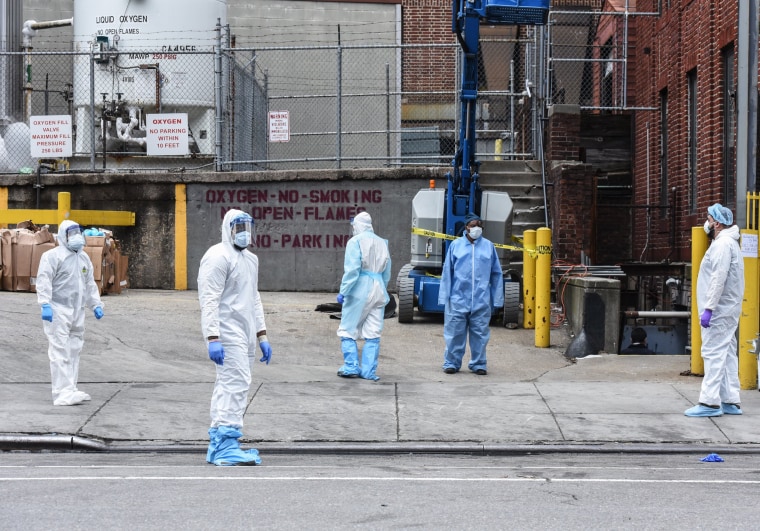WASHINGTON — An inspector general found that data management problems hampered the Federal Emergency Management Agency's distribution of personal protective equipment during the early days of the Covid-19 pandemic, according to a draft of the soon-to-be-released report obtained by NBC News.
The report from Department of Homeland Security Inspector General Joseph Cuffari, an appointee of former President Donald Trump, places blame on the nation's primary disaster response agency, rather than at the feet of the White House Coronavirus Task Force officials who ultimately had authority for the acquisition and distribution of the resources.
"The magnitude of the global event exposed weaknesses in FEMA’s resource request system and allocation processes. Specifically, WebEOC — the system FEMA used to process PPE and ventilator resource requests — contained unreliable data to inform allocation decisions and ensure requests were accurately adjudicated," Cuffari's report states. "In addition, although FEMA developed a process to allocate the limited supply of ventilators, it did not have a similar process for PPE."
But as NBC News reported in a series of stories last year, top coronavirus task force officials, often working at the direction of then-White House senior adviser Jared Kushner and then-Vice President Mike Pence, routinely circumvented FEMA's decision-making process to award ventilators, PPE and government contracts to favored states and companies.
The inspector general has purview over FEMA but not the White House. Still, the report hints at the difficulty career agency officials had in explaining decisions made by the president's political appointees in the White House, the Department of Health and Human Services and FEMA. Those officials worked through a Unified Coordination Group that could upend the recommendations of the agency.
"UCG officials considered various factors such as number of cases, number of vulnerable populations, and knowledge of a location’s medical infrastructure," according to the report. "FEMA officials could not provide further information about how each factor was evaluated nor the weight given to each factor when rendering a final decision."
The report is silent on political factors — such as Trump's efforts to reward allies and punish adversaries — that sources familiar with the process have said were prominent in the decision-making.
"There's a lot of politics involved," a person familiar with the decisions said in April 2020. "Senior leadership from [Capitol] Hill can call up and say 'ship 500 ventilators' and 500 ventilators go out."
At the time, a White House spokesman called claims of political interference "outrageous."
The report notes that states and private entities requesting aid from FEMA were often left in the dark about how decisions were made and that the agency was unable to accurately track requests.
"FEMA can improve its current and future pandemic response operations by documenting and communicating its decision-making process for the allocation of critical medical supplies and resources," the report says. "Without such documentation, FEMA will continue to face stakeholder allegations that PPE allocation decisions are inconsistent and lack transparency."
Specifically, the inspector general makes three recommendations.
First, that FEMA officials enhance the reliability of their data by "developing internal controls for WebEOC to prevent incomplete, inaccurate, and duplicate information from being entered into the system" and to make sure that users get better training.
Second, the inspector general writes that FEMA should formally document how decisions are made for resource allocation of "critical lifesaving supplies and equipment."
Finally, FEMA should do a better job of defining its role, and that of the Department of Health and Human Services, when the agencies are forced to respond to a pandemic, the report says.
The version of the report obtained by NBC News, watermarked with the word "draft" on each page and deemed "for official use only," does not include FEMA's response to the inspector general's findings.

